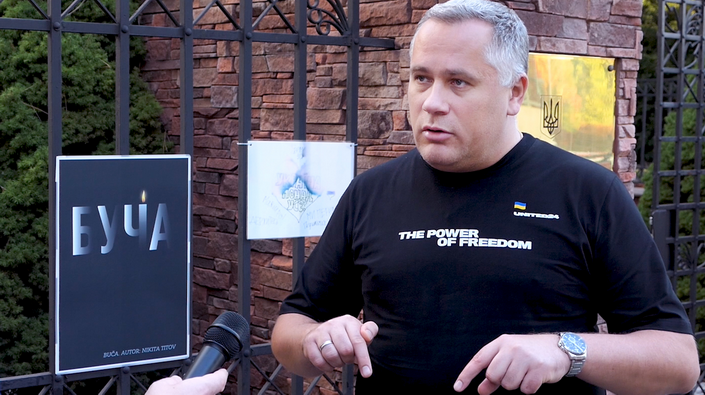European Political Community Should Change Its Name – Zelenskyy's Aide

Interview with Igor Zhovkva, diplomatic adviser of President Zelenskyy, following the results of the European Political Community summit in Prague.
Analysis of the summit outcomes from the Ukrainian perspective is also available, in Ukrainian
– Do you believe that the European political community will meet our expectations?
– Definitely. We remember how Macron came up with this idea and how we were then assured that it would not contradict granting us EU candidacy and joining the EU later. Now we have held the first ever European Political Community summit. I think it has achieved its goals. First of all, the EU members, and the countries that want to join the EU, not members and the countries that do not want to join, gathered in one place.
President Zelenskyy set the tone for the entire summit, speaking right after the event host, Tomáš Fiala, and offering his vision of this format. His "peace formula" found its support.
And if eventually they settle on it, then this format will have meaning.
– The summit organisers emphasize that Ukraine submitted proposals for this format. Were we the only ones?
– At least, I have not heard of any meaningful proposals from other states. Unless – if they submitted them after the event.
We were so engaged with the EPC format.
Ukraine's participation was unique: two of the country's leaders attended the summit: and the president opened it with his online address. The prime minister worked on the panels and spoke at the economic panel.
In short, we want it to exist and develop. So we really suggested ideas. It was about the economy and energy.
– What about the economy? Do you mean a common market with the EU?
– No, the creation of a common market with the EU is unlikely to be part of EPC. We will work bilaterally with the EU, not in this format.
It is difficult to say what the economic cooperation will be because it is only the very beginning of the European political community.
The most important outcome of this particular summit is that the leaders communicated with each other, including those who usually never talk, like the leaders of Armenia and Azerbaijan (and Turkey – EP). This is already positive.
The good thing is that we discussed not only politics and security but also the economy and energy.
Probably, the decision of the organisers not to adopt any joint documents was correct. Significant issues obviously could not be agreed upon. No one needed to sign a piece of paper, spending a lot of time on it-
It is also good that we agreed on the time and venue of the next summit, to be held in Moldova. And we suggest the name of it.
– What did we suggest?
– To change the name of the entire format. We suggest calling it the "European Peace Community."
The word "peace" is not only peace as it is. It applies to all spheres, including economy, energy security, and military security.
– Since the new summit is planned to take place in Moldova, and general attention to Moldova is growing, is it possible to synchronize our EU integration?
– It is synchronizing just because our countries are at the same stage.
For us, the priority now is to implement the seven requirements that we got with the candidate status. This is part of the homework that no one else will do for us. And then we will see. We might take joint steps with Moldova because our path is the same.
– What are President Zelenskyy's tasks in terms of European integration?
– The first thing is to implement these seven requirements as soon as possible, preferably before the end of the year.
Everyone has to put much effort into accomplishing that. The Verkhovna Rada must also strengthen the quality of work. Subcommittees on European integration have already been created in almost all committees, which will be responsible for adapting the acquis commutitaire. A deputy accountable for this work will be appointed to each committee.
The Rada must also finalise the implementation of the Association Agreement.
The government must significantly strengthen its work, understanding that European integration is no longer a foreign policy.
Written by Sergiy Sydorenko
"European Pravda" editor, from Prague
